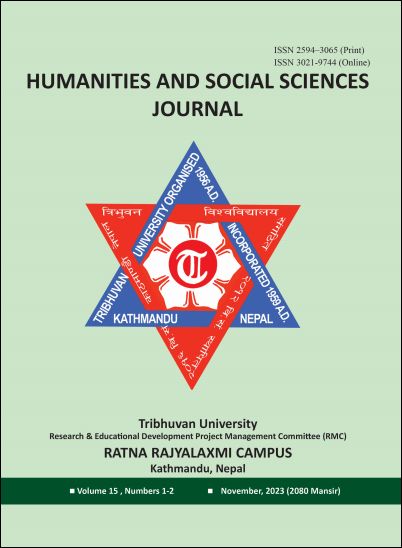Efforts of Nepal's Least Developed Countries (LDC) Graduation and Its Challenges
DOI:
https://doi.org/10.3126/hssj.v15i1-2.63790Keywords:
LDC graduation, poverty, inequality, post-graduation, challengesAbstract
The primary objectives of this study are to examine the initiatives undertaken by the government of Nepal for LDC graduation, identify challenges faced during process, and discuss the potential impact of graduation. This study is based on qualitative analysis of secondary data obtained from diverse domestic and international sources. Major sources include literature reviews, government policies, reports, and international declarations. Comprehensive desk review on the issue shows that Nepal has undertaken a strategic plan for LDC graduation, prioritizing investments in human capital, infrastructure, and healthcare, while addressing income disparities. Nepal has already achieved two requirements; HAI and EVI, and Nepal fell significantly short of the LDC graduation threshold of a per capita GNI. The plan includes achieving Sustainable Development Goals (SDGs) and progressing from a lower-middle income to an upper-middle-income nation by 2030.Despite progress, Nepal faces challenges in achieving graduation, including political instability, governance issues, and environmental vulnerabilities. The country lags in good governance rankings, which could hinder its development efforts. Nepal's commitment to SDGs is seen as a potential driver for LDC graduation, focusing on sustainability, gender equality, clean energy, job creation, and economic development. Nepal aims to become a high-income country by 2043, emphasizing poverty reduction, trade balance improvement, and overall quality of life enhancement. Leaving the LDC category will bring opportunities but also challenges, including the loss of special market access that was provided to the least developed countries like Nepal. Other challenges may involve growing trade and market capacity and strengthening the global competitiveness of internal production. Internally, intersectional variations of inequalities and poverty among and between regions, castes and ethnic groups in Nepal may generate challenges meeting LDC graduations and its sustainability.




